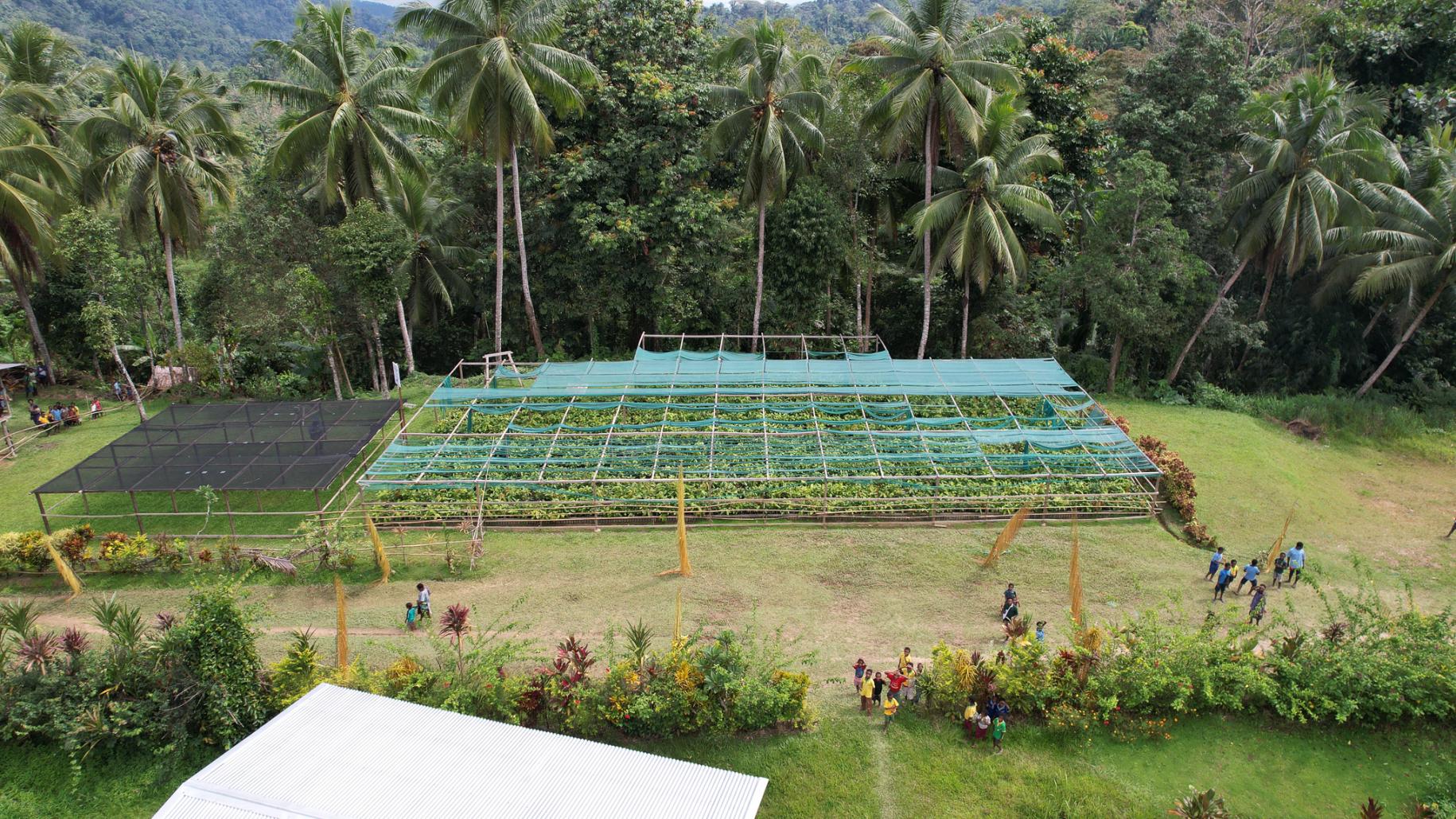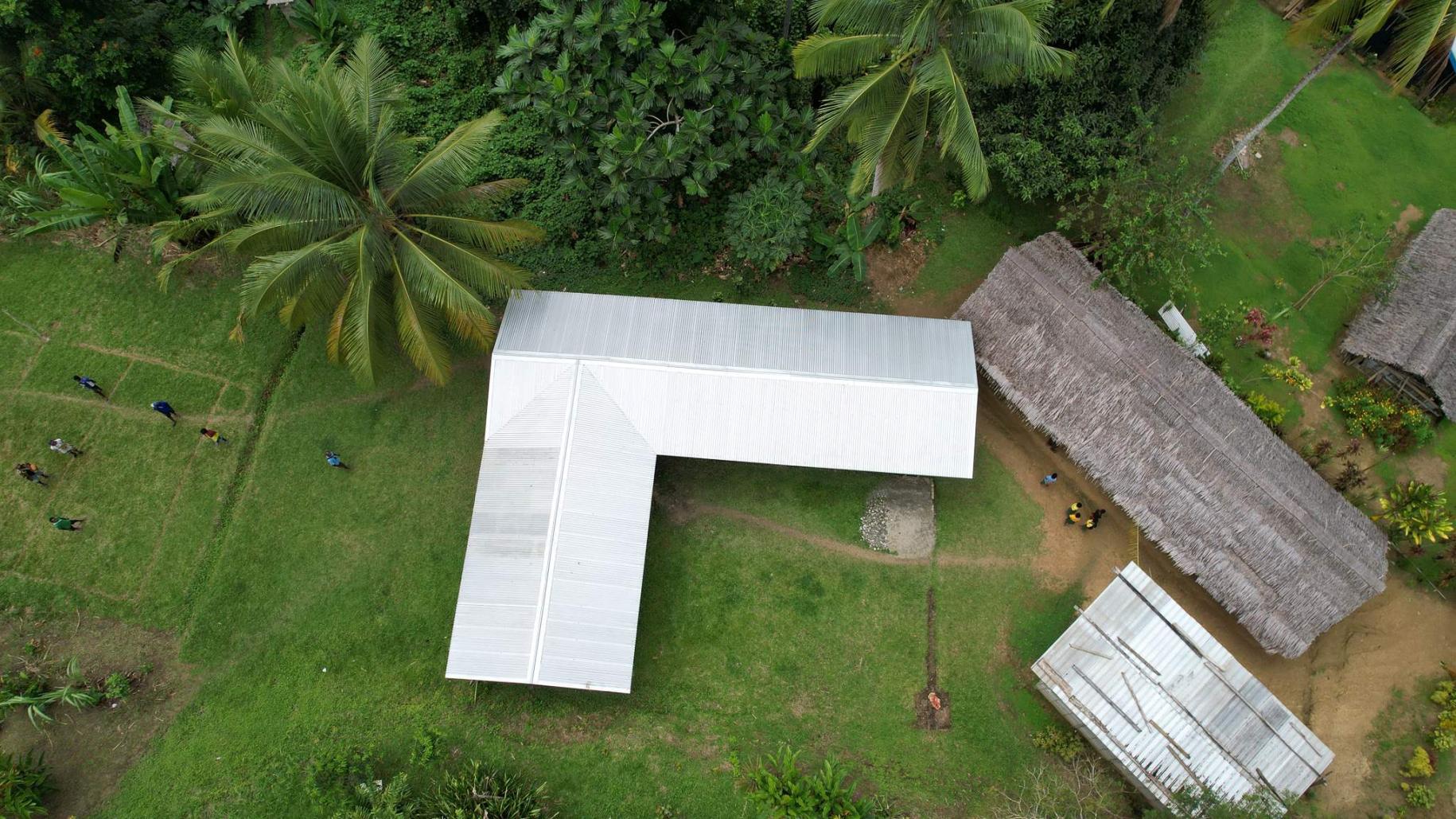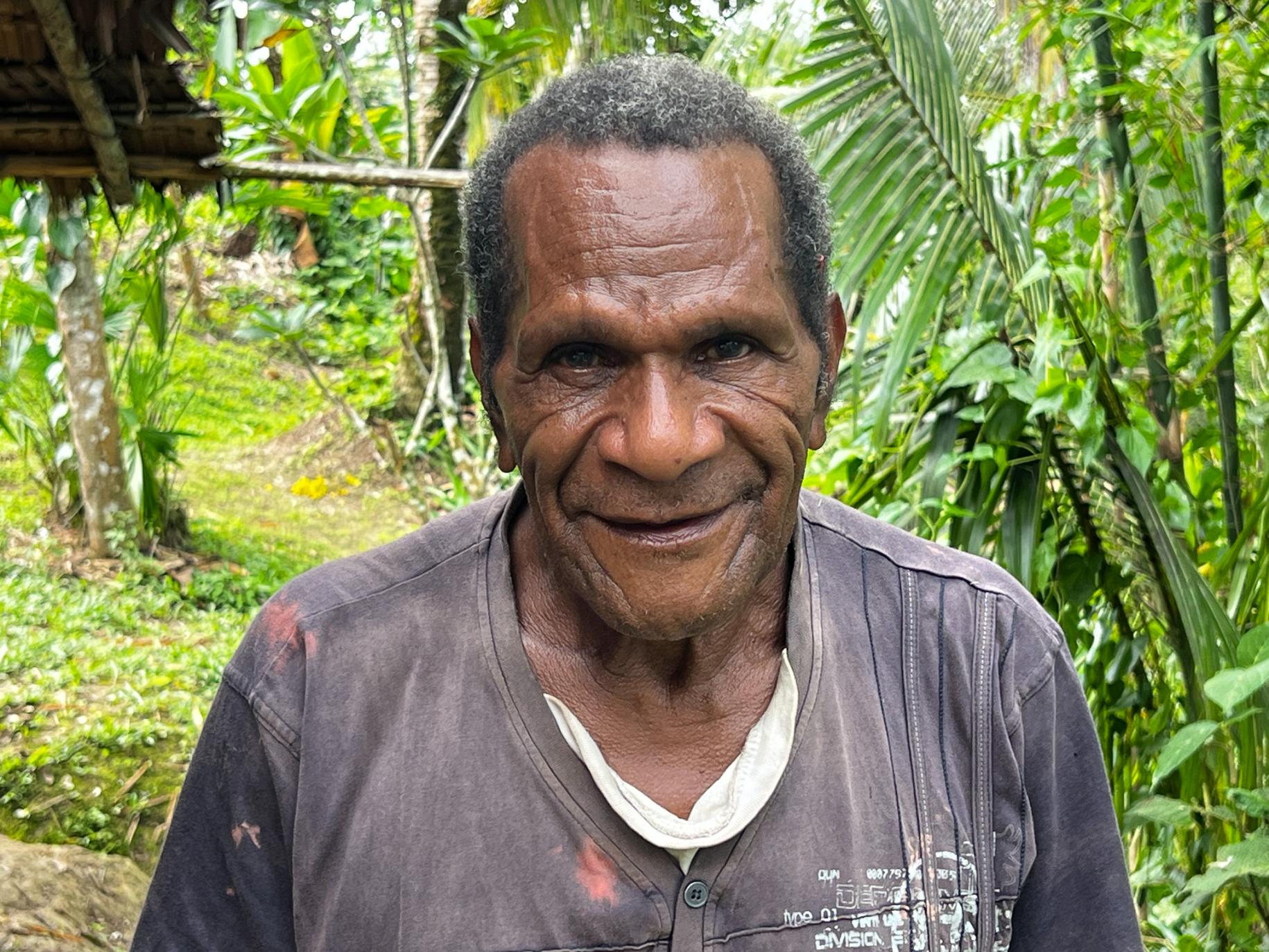Triumph on the Hill: Transforming Papua New Guinea’s Cocoa Farms
On the summit of a hill, where access roads often succumbed to heavy rains, Hambini Village in Papua New Guinea stands as a symbol of resilience and community spirit. Its 9,000 residents, spread across 1,500 cocoa farming households, faced formidable challenges. Their cocoa farms were less productive due to pest invasion, incomes were meagre, and their educational and health facilities were in disrepair. Yet, amidst these challenges, a steady transformation has been taking place, led by the villagers of Hambini.
Seeds of Hope: Cocoa Training and Nurseries
Under the European Union-funded United Nations Joint Programme on Support To Rural Entrepreneurship, Investment and Trade (STREIT PNG), the Food and Agricultural Organization (FAO) of the United Nations is working with rural farmers to revitalize cocoa farms, ensuring resilient livelihoods. Comprehensive training programs have helped farmers to improve their cocoa farming techniques and have upskilled the community to rehabilitate their ageing cocoa gardens. The programme also established two cocoa nurseries, the first with 11,000 Cocoa Pod Borer (CPB) tolerant seedlings and the second with 21,000 CPB-tolerant seedlings. Cocoa Pod Borers are moths native to South-East Asia that damage cocoa beans and cause significant yield losses.
Empowering the Community: Increased Income and Establishment of Sustainable Cocoa Farming System
FAO not only provided cocoa nurseries but also imparted training on effective nursery management. This empowered the community to manage the nurseries more efficiently. Furthermore, FAO purchased the seedlings from the same nurseries managed by the community and distributed among cocoa farming households. A bud grafting training has also enabled the farmers to improve older cocoa trees.

All in all, the farmers in Hambini Village will have 100,323 cocoa trees, covering 160 hectares of cocoa blocks, in full production in the coming months to supply 5 fermentaries in the community. This will further increase the estimated net profit of the community by half a million kina (US$ 134000) per year.
Not only did this increase the community's income but it also facilitated the development of an efficient and sustainable cocoa farming system. FAO is also actively promoting the community's engagement in downstream cocoa value chain activities, such as processing, marketing and establishing lucrative businesses with premium markets.
A Dream Realised: Renovating Educational and Health Facilities
The innovative use of income generated from cocoa seedling sales was pivotal. By allocating a portion of this income to the Village Trust Fund, Hambini Village constructed a permanent elementary classroom and a new health post. This brought quality education and essential healthcare to the community’s doorstep, relieving them of the burden to travel to distant towns.

Before the establishment of the health post, the villagers, including pregnant mothers, walked for over five hours to the main highway and waited for public transport vehicles to seek medical treatment and other basic services in the nearby Maprik town. Students who earlier had to attend old and dark classrooms with very poor ventilation now enjoy a modern facility, providing a better educational space.
A Community Champion: Michael Butuhe
Leading the way was Michael Butuhe, a retired primary-level teacher and head of the village business group. His vision, dedication, and tireless advocacy was instrumental in organising the community, forging links with FAO, and mobilising resources to construct the primary school and health post. Michael's leadership showcased the immense impact an individual could have when they harnessed the power of community and collaboration.

“With the support of the EU-STREIT PNG, their cocoa rehabilitation effort (led by FAO), production and cash flow in the community will be further increased for the farmers in Hambini to contribute more money to the Village Trust Fund to support maintenance of the school and the aid post.” Said Michael.
Transformation from the grassroots up
Hambini Village's success illuminates the transformative power of determination, visionary leadership, and collective action. Through cocoa farming, international support, and community unity, this village not only improved its economic prospects but also paved the way for a brighter, healthier, and more prosperous future. The program’s success in East and West Sepik provinces has inspired other provinces, such as Madang, to adopt best practices and sparked support and discussions with parliamentarians from the region. Their achievements set a powerful example for communities around Papua New Guinea, proving that resilience and cooperation can triumph over the toughest challenges.
The STREIT PNG Programme is the largest UN joint programme in the country, funded by the European Union and implemented by FAO (lead agency), UNDP, ILO, ITU and UNCDF. The programme aims to help improve the lives of the farmers from East and West Sepik provinces, by focusing on increasing sustainable and inclusive economic development of rural areas through improved infrastructure, entrepreneurship, business policy and financial inclusion, and agri-business development environment in cocoa, vanilla and fisheries value chains. The UN Resident Coordinator plays a leadership role and co-chairs the STREIT Programme Steering Committee (PSC) along with the EU and Government of PNG.
This article was first published on FAO. For more information about the UN's work in Papua New Guinea, please visit papanewguinea.un.org





































